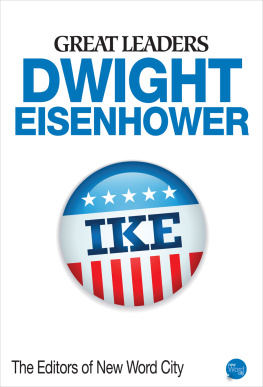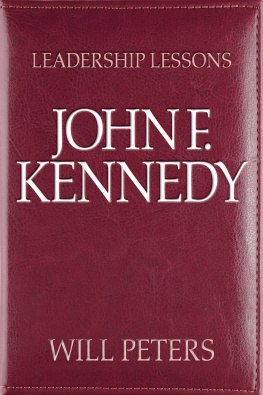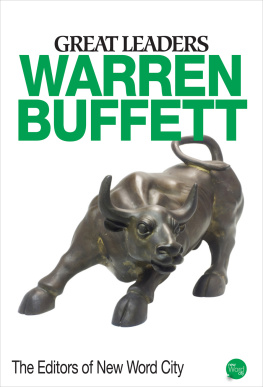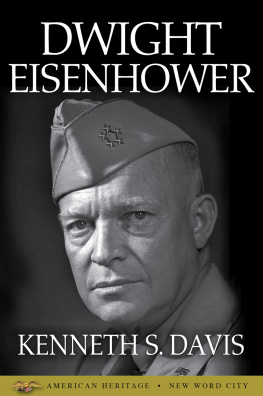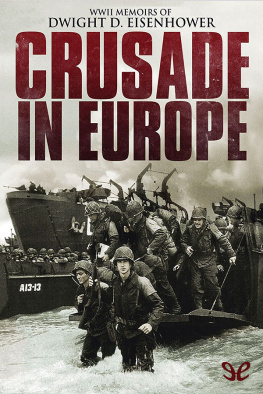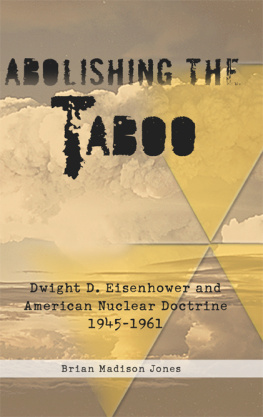Leadership is the art of getting someone else to do something you want done because he wants to do it. That definition of being in charge could have come from Tom Sawyer, fresh from conning his friends into sharing the honor of whitewashing a fence. But the words actually belong to an often underrated historical figure: Dwight D. Eisenhower, the thirty-fourth president of the United States.
Ike, as he was commonly known, has been widely hailed as the military genius who triumphed on D-Day in June 1944 and presided over the final defeat of Nazi Germany. But he was also a deft politician, who understood the complex currents below the surface. He used his warm personality, broad grin, and political capital to change the world. His overtures to Soviet Premier Nikita Khrushchev altered the tone of the Cold War. His loathing for war and curbs on defense spending fended off a tide of militarism. His interstate highway system transformed the economy and American life beyond recognition. But Eisenhower worked most effectively behind the scenes. Lifting a saying from his mentor General George C. Marshall, he knew that there is no limit to the good you can do if you dont care who gets the credit. You can profit by following his example as a leader.
Those who picture the Eisenhower years as uneventful have either forgotten a lot or are too young to remember the domestic and foreign turmoil of the 1950s. He took office promising to end the Korean War, and just a partial list of the other challenges he faced includes McCarthyism, recession, school desegregation, the overthrow of a Soviet-leaning regime in Iran, the Hungarian revolution, the British and French attempt to take over the Suez Canal, a near-war between China and Taiwan, military intervention to save the government of Lebanon, the Soviet launch of Sputnik I, the rise of Fidel Castro in Cuba, Khrushchevs ultimatum that Allied forces must leave Berlin, and the downing of the U-2 spy plane that derailed the summit meeting that he was counting on to begin a period of peaceful coexistence.
Eisenhower himself endured three serious medical crises as president, setting a new standard for candor in letting the world know about them. And while his handling of all these issues is and was by no means universally applauded, it is to his credit that he ended his presidency with peace still reigning, his quiet dignity unruffled, and his popularity intact. Polls showed that if the Constitution had not limited presidents to two terms, he could easily have been re-elected.
Shortly after Eisenhowers eight-year tenure came to a close, seventy-five historians ranked him as only twenty-first out of all thirty-four U.S. presidents (a dead heat with Chester Arthur and one notch above Andrew Johnson). Curiously enough, though, by 1990, Eisenhowers position had risen to the top ten. Why the dramatic reversal? In large part, it was a simple recognition of the facts. Eisenhowers strengths as a leader had become evident as his aides wrote memoirs, official papers were declassified, and journalists and historians uncovered new details of his presidency. More than fifty years after he left office, Princeton Universitys Fred I. Greenstein would label his administration the hidden-hand presidency.
Dreams of a Barefoot Boy
Like his leadership style, Dwight Eisenhowers boyhood also evoked Tom Sawyer. He was the last American president to be born in the nineteenth century, having entered the world on October 14, 1890. He grew up in Abilene, Kansas, a cow town whose best known citizen was the infamous gunslinger Wild Bill Hickok. The Eisenhower family moved there in 1892, relocating from Denison, Texas, after a general store Eisenhowers father co-owned went bankrupt.
Like Sawyer, Eisenhower was a folksy boy known for his physical strength and cheerful disposition, marred only by a bad temper. Born David Dwight Eisenhower - he later reversed his names because everyone called him Dwight - he was the third of seven sons. His parents, Ida Elizabeth Stover Eisenhower and David Jacob Eisenhower, instilled in him a strong competitive streak and an unrelenting sense of discipline, requiring him to do his chores and read the Bible aloud. The application of stick to skin was a routine affair, Eisenhower wrote in his memoir. After the bankruptcy, there was little money. David Eisenhower, an engineer, got a job at a creamery. (I have found out in later years that we were very poor, Eisenhower said, but the glory of America is that we didnt know it then.) After high school, he spent two years as night foreman at the creamery to help pay his brother Edgars college tuition. Another brother, Milton, would grow up to become a college president, leading Kansas State, Pennsylvania State, and eventually Johns Hopkins universities.
In 1945, Eisenhower - whose fame by then had eclipsed Wild Bills - returned to Abilene for a hometown celebration in honor of its conquering hero. I want to speak first of the dreams of a barefoot boy, the general began. Always in his dreams is that day when he finally comes home - comes home to a welcome from his own home town - because today that dream of mine of forty-five years or more ago has been realized beyond the wildest stretches of my own imagination. I come here first to thank you, to say the proudest thing I can claim is that I am from Abilene. It was in Abilene that Eisenhower would later kick off his run for the White House.
In 1911, Eisenhower decided to attend the United States Military Academy at West Point, but not because he craved the life of a soldier. It was the free tuition that got his attention. In fact, his mother was a staunch pacifist. Still, she let him make the decision for himself. In his memoir, Eisenhower recalled the day that he left for West Point: She saw me off, and then went back home to her room. Milton told me later that, for the first time in his life, he heard Mother cry.
At West Point, Eisenhower won a spot on the varsity football team. The future president played as hard as I knew how, trying to instill fear... into every opponent as a linebacker and running back. But in his sophomore year, a knee injury ended his gridiron career. He was so despondent that he wanted to leave West Point, but his friends talked him out of it. Life seemed to have little meaning, he recalled in his book At Ease. A need to excel was gone.
Eisenhower took up smoking and playing poker. His grades sank, his demerits climbed, and he ended up graduating in the middle of his class academically, but close to the bottom in discipline. Years later, he was shown an early assessment of his performance at West Point, proclaiming him as born to lead. As Eisenhower saw it, The man who wrote that was either a reckless prophet or he had relaxed his standards.
It was actually a shrewd appraisal - and one that would be echoed throughout Eisenhowers life. This is the best officer in the Army, wrote one of his supervisors. When the next war comes, he should go right to the top. Given the identity of the man making that assessment, it would be taken extremely seriously. It was none other than General Douglas MacArthur, who later would become supreme commander of the Allied Forces in the Pacific theater during World War II.
What Am I Doing Here?
In 1917, when the United States joined the Allied effort in World War I, the possibility of commanding troops on Europes western front enthralled Eisenhower. But his ambition was thwarted by his sheer competence: His superiors were reluctant to send him overseas because he was so good at preparing others for action both in combat and on the football field. The freshly commissioned second lieutenant marched off to his first assignment at Fort Sam Houston, just outside San Antonio, Texas, where he served with a charismatic young officer named George Patton and married Mamie Doud, a charming and cheerful young woman from Denver, Colorado. But he was harboring serious doubts about his purpose in life. I often asked myself: What am I doing here? he wrote in
Next page
